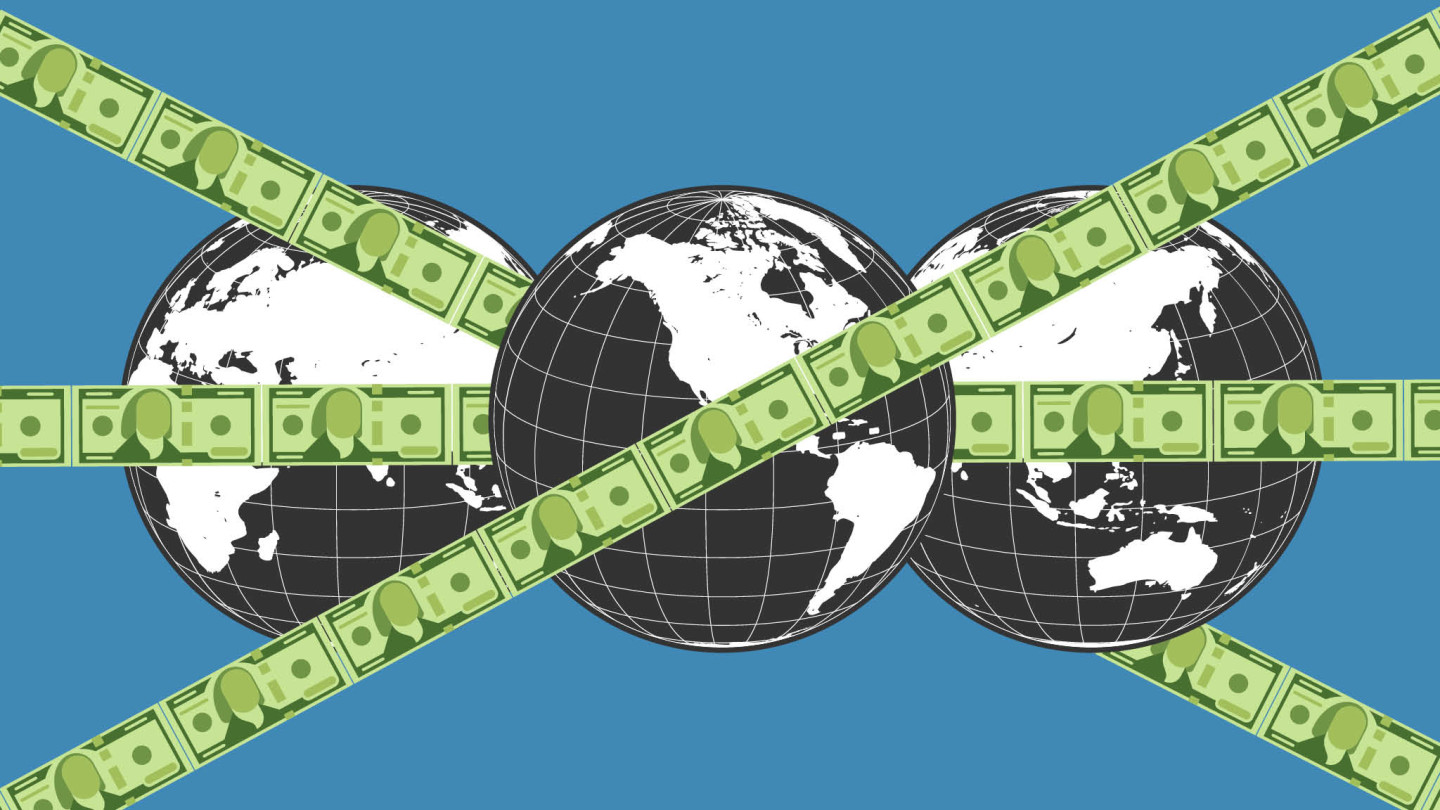Peace with Trump, War with Biden?
Since Jimmy Carter’s peaceful legacy, summarized by the quote, “We kept our country at peace. We never went to war. We never dropped a bomb. We never fired a bullet,” Trump is indeed the first president not to wage war during his presidency. However, the fact that he did not do so is not indicative of a desire to give up on U.S. hegemonic interference, a move heavily criticized by progressives.
As president of the United States, Trump has insisted on countless occasions that U.S. allies pay a larger share in defense costs; he also unilaterally pulled the U.S. out of international organizations it initially proposed and led, such as the Paris Agreement on climate change, the Iran nuclear deal and more. His actions presented the world with a clear message: His duties meant nothing to him as long as he could enjoy his rights. In other words, he would benefit from maintaining U.S. hegemony while not bearing the weight of the cost.
This is also known as an “illiberal hegemony,” and it stands in stark contrast to the “liberal international order” established by the U.S. after World War II in order to further spread its values and systems. Since the dissolution of the socialist bloc in the early 1990s, the U.S. has become a target of criticism for exhibiting excessive interference under the guise of protecting liberal international order and for displaying such a lack of aversion to armed conflict. Furthermore, the U.S. has been criticized for excessively exerting its national power on countries around the world and making light of China, a vital player, thus allowing the U.S. to maintain hegemony.
For realists University of Chicago Professor John Mearsheimer and Harvard University Professor Stephen Walt, the liberal international order and U.S. hegemony have been frequent targets of criticism. In particular, the two have openly criticized the heads of diplomatic and national security in Washington for putting the country into an exceedingly difficult position with its bipartisan support of the liberal international order. Ben Rose, national security adviser to former U.S. President Barack Obama, called these diplomatic and national security elites “blobs” — although I suspect he may have desired to convey a meaning closer to “deeply corrupted forces of evil.” In any case, Trump’s push to withdraw U.S. troops from the Middle East and his prideful boasts about not waging any new wars tell only half the truth. In reality, they also reflect the dissatisfaction of Trump supporters in having to accept his decision to expend U.S. efforts on spreading liberal international order despite it not benefiting the interests of U.S. citizens.
Being classic supporters of the liberal international order, themselves, the diplomatic and national security teams of the Biden administration are also well aware of such criticisms. As if in expectation of Biden’s victory in the presidential election, Biden’s National Security Adviser Jake Sullivan wrote a lengthy article at the start of 2020, refuting Mearsheimer's and Walt’s criticisms of the liberal international order. He argued that their criticisms ignored the reality of the U.S. position and curtly cut them off by stating that policymakers, such as himself, who actually take into consideration the realistic limitations of pursuing national interests, would be much more knowledgeable about such things than would be professors who just sit at their desks all day.
In addition to this, Sullivan also pointed out “the recent shift in Washington’s foreign policy consensus” and said that “most individuals in the field of foreign policy oppose another conflict in the Middle East … we will pursue effective counterterrorism strategies that are less dependent on direct military power.”* For that reason, they will be “leading us to the convergence of leftist and moderate opinions” by emphasizing the presence of “common priorities in international economic policy, such as an increased interest in distribution effects, a concentration on corruption and neo-fascism, an emphasis on diplomacy rather than military use, and continuous intervention in democratic alliances.”*
Sullivan's remarks clearly suggest that the Biden administration is reluctant to deploy forces where unnecessary and will refrain from employing the invasive framework of the existing liberal international order any further. Due to a number of factors, one of which is the many internal conflicts Trump has fueled domestically, it will be difficult for the U.S. to wield its influence internationally through military force. Besides, we cannot forget that possibly the worst foreign policy decision in U.S. history was precisely such a use of military force by the U.S. in its intervention in the Libyan civil war, a decision made under the Obama administration that is still bringing great pain and tragedy to countless Libyans today.
Whether Biden will be able to continue Trump’s legacy of waging no new wars, we can only wait and see. Rather than bringing to light only half the truth as a means of dissipating the dissatisfaction of his supporters as did Trump, or following the textbook model of “strategic patience” as Obama did with North Korea, I hope Biden can employ more active and constructive means of intervention during his presidency. Whether or not he will do so, I believe, is simply a question of whether or not the United States will be able to repair the liberal international order to which it still adheres.
*Editor's Note: This quotation, accurately translated, could not be verified.

